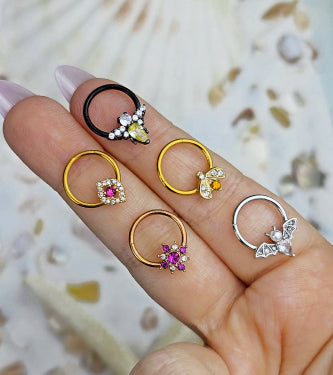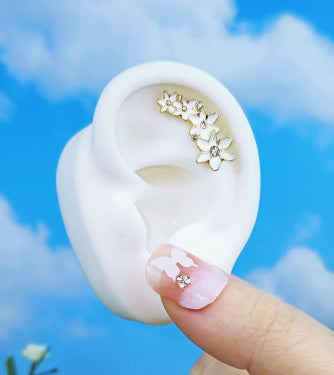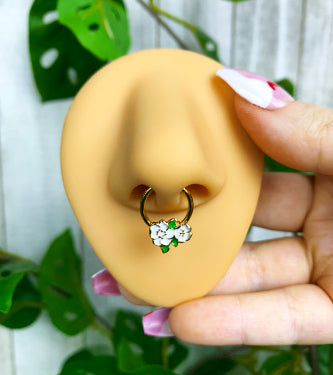When it comes to the metals and materials used to create your body jewelry there is always new and changing information. At Body Candy we do our best to help you make an informed decision but we ALWAYS recommend that you ask your own trusted piercer for advice specific to you.
With that said I give you a few final bits of information about some of our most popular and commonly used materials.
Platinum:
- Platinum is a dense heavy metal with a high resistance to corrosion and wear. It’s high shine, maintains a silvery white tone, and is also the least reactive of all metals when it comes to skin and piercings.
- Platinum jewelry is an excellent hypoallergenic choice for piercings but the material itself is rare and comes with a higher price tag.

Sterling Silver:
- Sterling silver–even when combined with other metals–is soft enough to scratch, creating nicks that can be a trigger for bacteria.
- Silver tends to oxidize when it comes in contact with body tissues or fluids and the result (tarnish!) is not good for your piercing.
- Do not wear sterling silver jewelry in unhealed body piercings or if you are prone to allergic reaction!

Acrylic:
- “Acrylic” refers to varieties of plastic like lucite and plexiglass that are super light and great for larger gauge piercings.
- Acrylic jewelry comes in every color and print you can imagine but is much easier to break or shatter than other materials.
- Bending, heating, and dropping are death for acrylic jewelry which means Acrylic can not be sterilized and is not a good choice for people who are prone to allergic reactions or for use in unhealed body piercings.

Still have questions? Check out the April 17th and April 13th blog posts for information on some of our other metals and materials or call our customer service department 9-5pm Monday through Friday (Eastern Standard Time) at 1-800-694-1426. They will be happy to suggest a choice for you!
Remember: the best person to ask for a recommendation of the material that is best for you is a trusted piercer and the only qualified person to ask about symptoms of allergic reaction is a medical professional!





